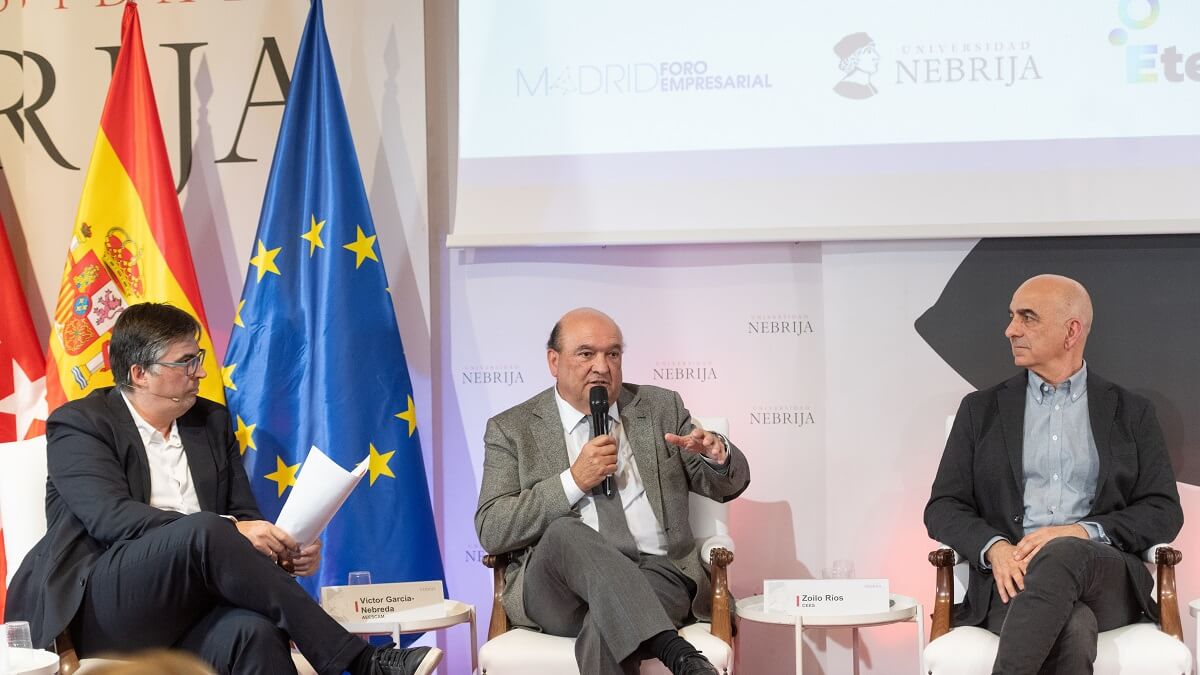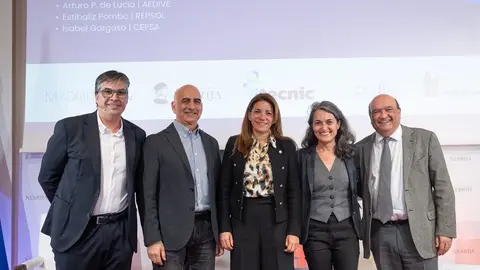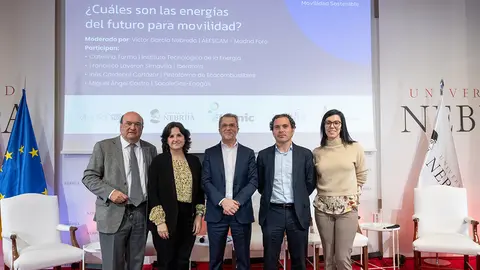The challenge of making the new sustainable mobility a reality through various clean energies

The Nebrija University in Madrid hosted the I Energy and Sustainable Mobility Meeting, organised by AEESCAM and Madrid Foro Empresarial, to highlight the value of fuels and renewable energies for sustainable mobility.
Atalayar was able to talk to Víctor García Nebreda, secretary general of AEESCAM, the Association of Service Station Entrepreneurs of the Community of Madrid, and also secretary general of AERVICAR, to analyse this event exclusively.
What was your objective in organising this meeting, together with the Nebrija University, the Madrid Business Forum and the Association of Physicists?
The objective is to make this new sustainable mobility accompanied by new and sustainable energies a reality. To see the degree of maturity of each energy or technology and try to shed some light on how long this transition is going to take, in what way, whether it is positive or not.
From what we have heard, we need more of a combination of energies and not that there seems to be a struggle between the two.
Yes, it is clear that it will be impossible with just one energy source, or just one technology, to supply all the energy demand that there is going to be.
It is important that electric mobility is established, it is important that biofuel mobility is established, and in due course that hydrogen mobility is established, or any hybrid technology, or gases, that may arise at the time.
Because in this case, the role of service stations would be open to any type of energy.
Yes, it is open to any technology, but it seems that not everything is to put a hydrogenerator to serve hydrogen, because it costs several million euros, it is very difficult to put it. Putting a charging point, although it is also expensive and right now it is not profitable, but it is easier to access. We will never be able to absorb all the energy, but it also depends on where you are, if you are very urban, if you are more on the road, you will choose one type of energy or another. All of them at the same time it will be very difficult for us to offer them to the client.

Listening, for example, to Inés Cardenal, from the Platform for Renewable Fuels, it is offered as a good alternative, taking into account that cars do not have to be changed, that service stations could be used and that it would be very affordable for the customer.
Yes, and the biggest advantage it has, and there are already success stories, is that the emissions reduction happens now. You don't have to wait to set up a new network of charging stations or for the technologies to mature, this is something that can be put in place now, tomorrow, and there are examples such as the French L85, which has achieved this, which has been a tremendous success, but we have to help.
We are giving a lot of aid for electric mobility, anyone who buys a lot of electric cars gets 8,000 or 9,000 euros, so maybe we should also help with taxation for renewable fuels that are not polluting, and we should also consider them as such, and reduce this tax, because right now a renewable fuel pays the same tax as a fossil fuel, and it doesn't make much sense.
Would a clearer, more direct regulation be necessary, perhaps at the Spanish level or should it be at the European Union level?
It should be at the European Union level, because everything comes from the European Union, so Spain cannot go against the European Union, so this would have to come from above, and then each country also has its degree of flexibility to apply European rules, but, of course, what Europe decides is not going to influence 100% what comes out of here.
In terms of service stations, we need to promote quality service, a service that is well attended, with professionals, and, above all, one that meets the needs of the consumer, whatever their purchasing power.
Yes, the problem is that there are many market models and the market is segmented and the customer chooses, but, obviously, we are committed to a service station with professionals, with installation staff, and which provides a series of services to the customer, not just fuel, but another amalgam of a shop, or a toilet, or many other things that may arise with new technologies.

Finally, if you had a consumer in front of you, would you dare to recommend buying a car or keeping the one you have? Because one of the important issues is to renew the car fleet.
I would dare to make a very clear and concrete recommendation: buy the car that you like the most and that best suits your needs.
If it is a new car, it will pollute a lot less, but 40% less than a car from 8 years ago, not 15 years ago, but 8 years ago. And if you want to buy a gas, LPG, electric or plug-in hybrid car, whatever best suits your needs and use.
Maybe he should pay more attention to experts, for example, as in this meeting on energy and not so much ideology or business interests or political interests.
I don't know whether we should pay more attention to experts or pay less attention to advertising campaigns that advocate the disappearance of cars, of the combustion engine, which will not happen, at least not in the next 30 years. You don't buy a car for 100 years, you buy it for 15 years, or 10, or 12.











